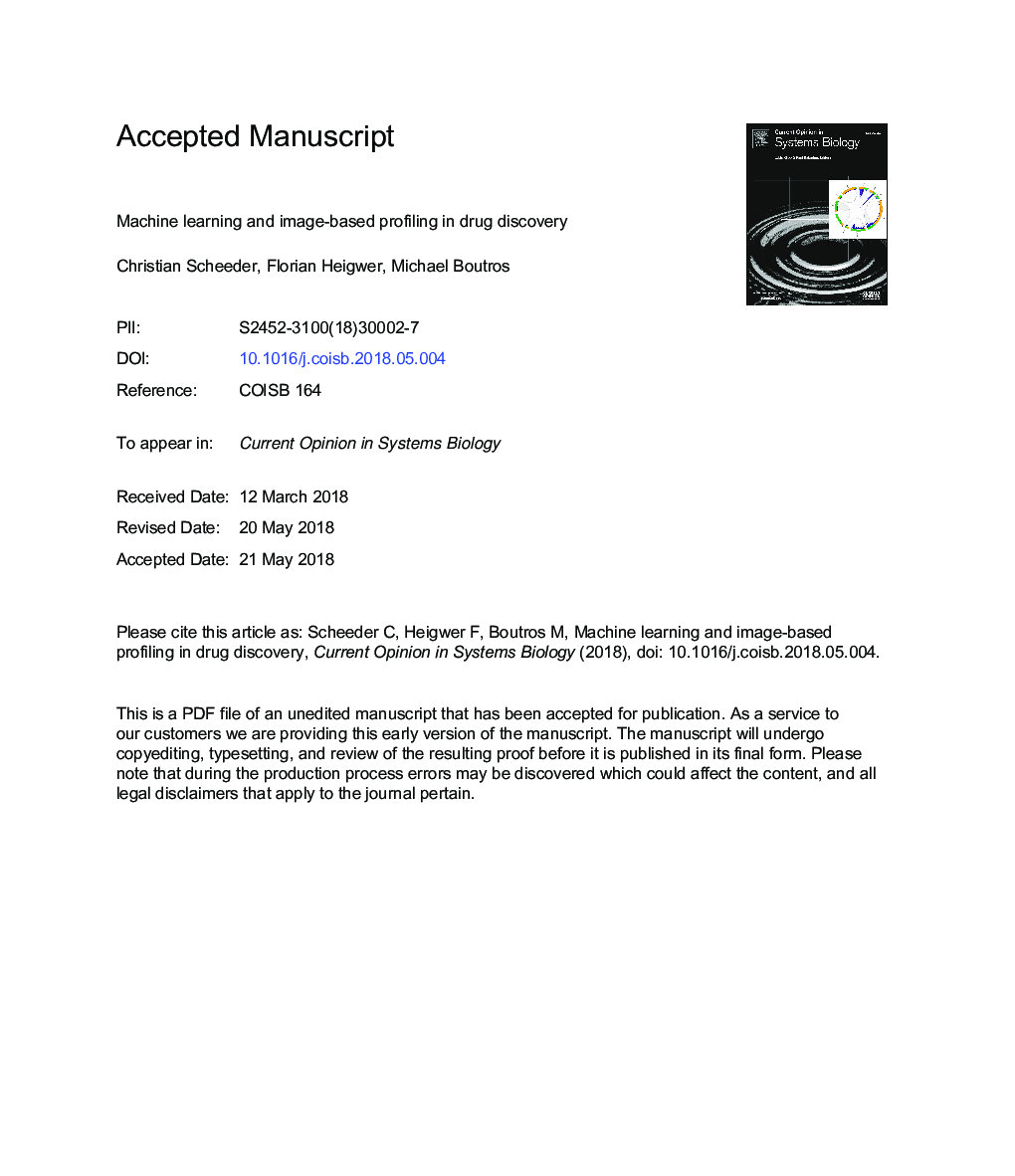| Article ID | Journal | Published Year | Pages | File Type |
|---|---|---|---|---|
| 8918028 | Current Opinion in Systems Biology | 2018 | 29 Pages |
Abstract
The increase in imaging throughput, new analytical frameworks and high-performance computational resources open new avenues for data-rich phenotypic profiling of small molecules in drug discovery. Image-based profiling assays assessing single-cell phenotypes have been used to explore mechanisms of action, target efficacy and toxicity of small molecules. Technological advances to generate large data sets together with new machine learning approaches for the analysis of high-dimensional profiling data create opportunities to improve many steps in drug discovery. In this review, we will discuss how recent studies applied machine learning approaches in functional profiling workflows with a focus on chemical genetics. While their utility in image-based screening and profiling is predictably evident, examples of novel insights beyond the status quo based on the applications of machine learning approaches are just beginning to emerge. To enable discoveries, future studies also need to develop methodologies that lower the entry barriers to high-throughput profiling experiments by streamlining image-based profiling assays and providing applications for advanced learning technologies such as easy to deploy deep neural networks.
Keywords
Related Topics
Physical Sciences and Engineering
Computer Science
Computer Science (General)
Authors
Christian Scheeder, Florian Heigwer, Michael Boutros,
